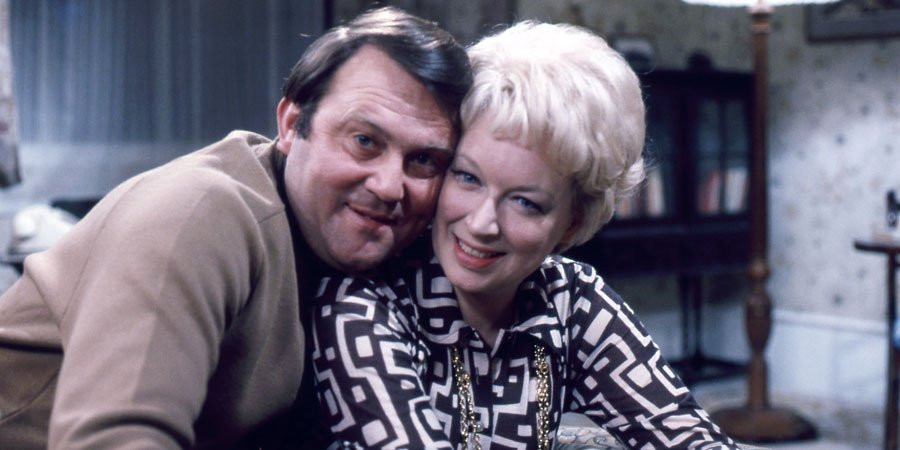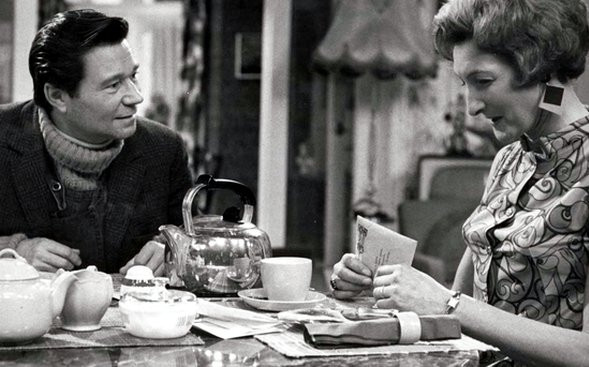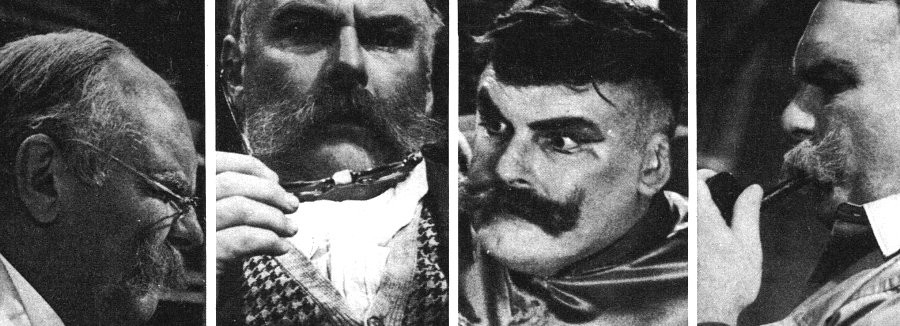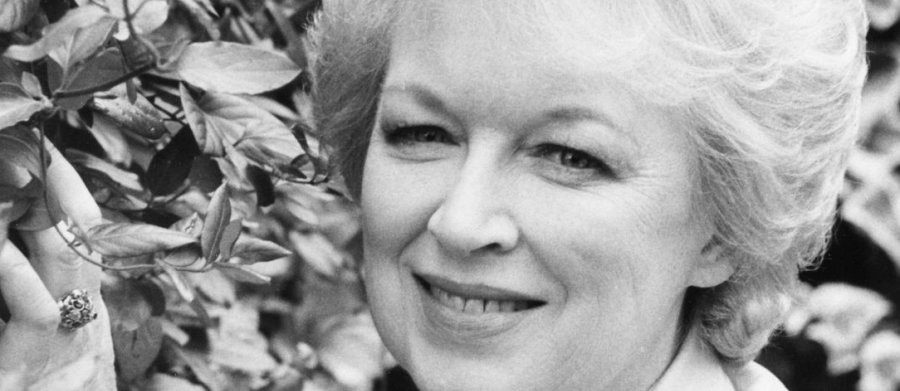
June Whitfield
The term ‘national treasure’ has become as overused as any of its predecessors like ‘legendary’ and the oft-coined ‘there will never be another.’ But in the late Dame June Whitfield, it’s safe to say that the term was fully merited.
With a career that spanned eight decades and covered stage, screen and radio at its most comfortable and most rebellious, Whitfield rattled through the credits without a trace of showbiz ‘celebrity’ aura and is now remembered as one of the finest comic talents to have graced the industry. Indeed Denis Norden once puzzled that, ‘the greatest of showbusiness mysteries was how anyone could contemplate doing a comedy show without June Whitfield.’
Born the daughter of amateur actors in 1925, June Whitfield’s education was largely dictated by the war effort. Her parents concerns about being raised in London during the conflict meant that they sent her to Sussex, but no sooner had she fled the city for education on the south coast than her new school was also evacuated, leading her to take her next classes in Penzance. By 1940, she had been re-located to Huddersfield where she was enrolled into secretarial classes as her father felt no financial success could be attained from a theatrical career.

In 1942, June enrolled at RADA. The lack of males at the college meant that she was frequently called upon to take company roles normally played by men. It was at RADA that June discovered her penchant and indeed desire for comedic roles. Her insecurity at this early age meant that she felt she would be laughed at in serious roles, so she would rather take on comedy characters where the laughter was intended.
Whitfield’s opening role in the West End was simply raising and lowering the curtain, but by 1944 she was taken on by producer David Horne for a theatrical tour of Dear Brutus and The Land of Promise, the latter of which saw her cast as an 80-year-old woman. This was swiftly followed by a breakthrough role in The Cure For Love, where she would credit Wilfred Pickles as providing her first lessons in comic timing. Throughout the 1940s and early 1950s, June would be in regular stage work, including a successful audition for a part in Ace Of Clubs where she impressed none other than Noel Coward enough to claim a role.
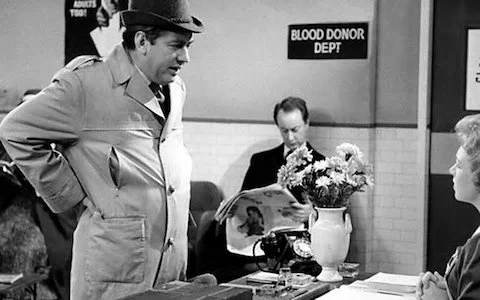
The call that changed June Whitfield’s career shortly afterwards came from Frank Muir and Denis Norden, who were hunting a replacement for Joy Nichols in the popular radio show Take It From Here. Here she would create the first character that she is remembered fondly for – Eth Glum of The Glums family, displaying her talent for accents and mimicry.
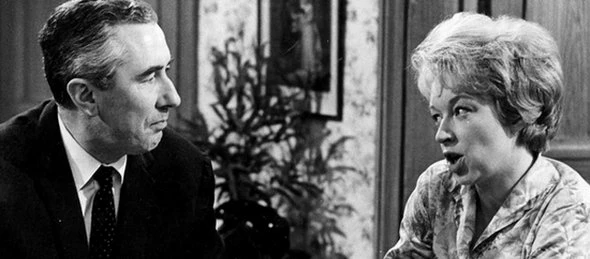
June’s television breakthrough came with the show Beggar My Neighbour in 1966. After many years of support roles, she finally took a lead performance in a husband and wife team opposite Peter Jones. Although the show ran for only three series, losing Jones after only one of them, it was successful enough for producer Kenneth Carter to introduce her to Terry Scott, who was looking for a female lead in his sketch show Scott On… . The programme would be the first time the pair worked together, but would sow the seeds of a near 20-year on-screen partnership that established June as one of the country’s leading comic performers.

Scott On… would lead to a sitcom, Happy Ever After. Scott and Whitfield played a married couple coping with life after the children had flown the nest. It ran successfully for five years, but when the writers refused to write any further episodes, believing the format to have run its course, the BBC promptly found themselves a new writer, changed the surnames of the leading characters and the title of the programme, and Terry and June was born.

The newly formed programme was largely a slapstick vehicle for Scott, with Whitfield playing his supportive wife as she tried to perform damage limitation on Scott’s bumbling efforts to move up the social and career ladders.
Almost before it started, the critics were already after the show for depicting the comfortable and unrealistic Middle England that fresh new programmes were now rebelling against. Despite this, Terry and June performed well in the ratings and during this run June Whitfield added another career highlight to her already ample CV as she joined the team of The News Huddlines, Roy Hudd’s hugely successful satirical radio sketch show in which June would provide a vast range of characters, most notably one Margaret Thatcher.
The critics would eventually get their way with Terry and June, and although the BBC changed their mind about axing the show after nine series, writer John Kane was already committed elsewhere and so Whitfield and Scott would leave the screens.
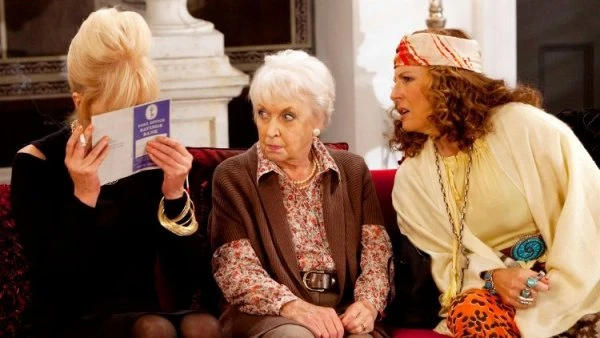
Rather than settle into early retirement, Whitfield discovered a new audience almost immediately upon the demise of Terry and June. An appearance on French and Saunders in 1988 endeared her to Jennifer Saunders, so when a five-minute sketch spawned into a 1991 pilot for Absolutely Fabulous, Saunders had only June in mind for the mother. Although a small role, Saunders promised to expand upon it should the programme be picked up…and the rest as they say is history. June had a new audience, a youthful following that would have poured scorn on Terry and June if the critics were to have been believed just a few years previous.
Ab Fab went fromstrength to strength, as did Whitfield’s career. Eastenders, Coronation Street, radio and television adaptations of Miss Marple, Dr Who and even a guest appearance in the global hit TV show Friends would follow, during which time June still kept the country consistently laughing at the put downs of Eddie and Patsy in tandem.
Once Ab Fab came to an end, June moved to another legendary BBC offering, Last of the Summer Wine where she played Nelly for the final five years of the show.
Throughout her career, June Whitfield never changed her approach to life or the business. She had married Tim Aitchison in 1955. Aitchison had been the brother of the doctor called to care for her sick father, and their marriage was solid through to Aitchison’s death in 2001. June believed that it would never be possible to put ‘the business’ first and have a successful family life. Have a successful family life and they will support you to become a success in ‘the business’ was her approach, and the wisdom of that approach is evident in the body of work she left behind.
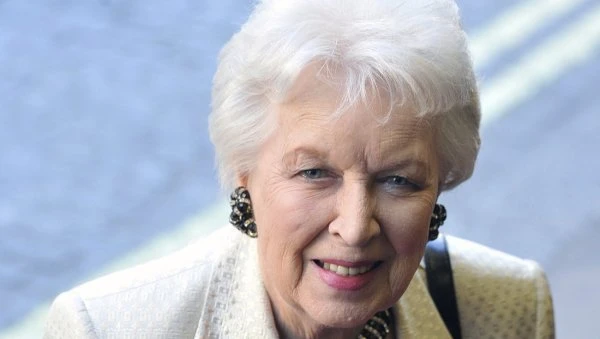
June Whitfield passed away unexpectedly in her sleep just after Christmas in 2018 at the age of 93. In her autobiography in 2000, when assessing the varying approaches of BBC department heads over the years, June wrote that ‘…as individuals we probably don’t matter much – there will always be somebody else to play your part if you don’t.’ In a lot of cases that is undoubtedly true, but in the case of Dame June Whitfield, absolutely not…she was absolutely fabulous.
About the Writer Brian Slade
Born and raised in Dorset, Brian Slade turned his back on a twenty-five year career in IT in order to satisfy his writing passions. After success with magazine articles and smaller biographical pieces, he published his first full-length work, `Simon Cadell: The Authorised Biography'.
Brian is a devoted fan of the comedy stars of yesteryear, citing Eric Morecambe, Ken Dodd, Harpo Marx and Dudley Moore amongst his personal favourites. He was drawn to the story of Simon Cadell through not only `Hi-de-hi!' but also `Life Without George', a programme he identified with having grown up in the Thatcher era.
Published on November 22nd, 2019. Written by Brian Slade for Television Heaven.







